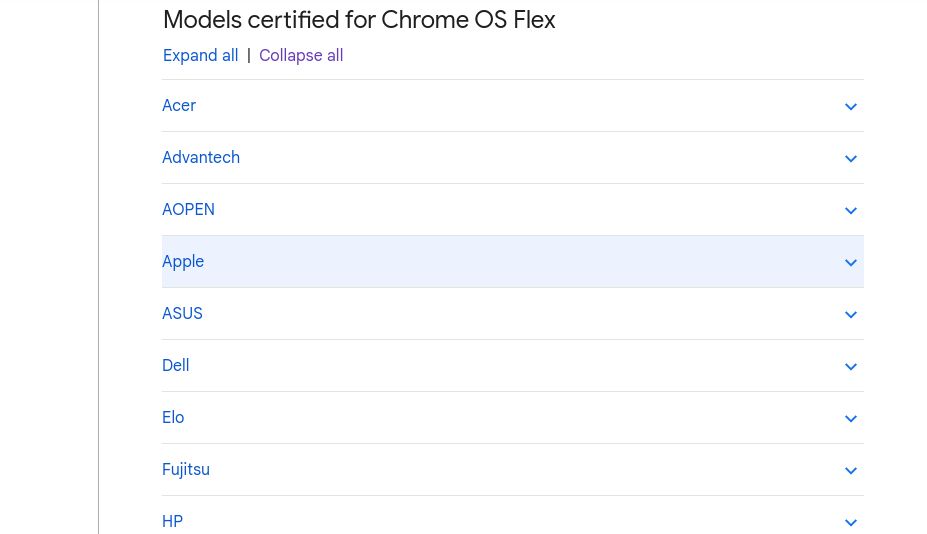Google has announced that it has certified a number of PCs and Macs to run ChromeOS Flex, a version of ChromeOS that runs on standard computers. The company touts the operating system as a way for businesses to increase security and avoid e-waste by installing it on older computers.
Which Devices Are ChromeOS Flex Certified?
Google apparently wants to make ChromeOS Flex the summer jam of 2022 for enterprise companies. The company announced the certification of 295 older computers in a summer-themed official Google Cloud blog post. Google said:
Just like too much sun, software bloat, clunky hardware, and security vulnerabilities can cause unwanted damage. Thankfully, Chrome OS Flex is just the sunscreen your legacy devices need.
The full range of supported devices is available on a ChromeOS Flex help page and includes devices from major manufacturers such as Acer, Apple, Dell, Lenovo, and others. Device support ranges from "certified" to "minor issues expected" to "major issues expected." Google still brands the OS as "early access" on the official ChromeOS Flex web page.
Google said that even if older computers may not officially be certified for ChromeOS Flex, prospective users should feel free to download it, pop it on a USB stick, and try it out anyway. It's similar to how other standard Linux distributions can run from a USB stick. Installing ChromeOS Flex effectively turns any spare computer into a Chromebook.
ChromeOS Flex Sends Hotel Ransomware Packing. Could It Do the Same to Windows?
One enthusiastic corporate customer, Nordic Choice Hotels, turned to ChromeOS Flex after finding itself with some unwanted guests when malware infected its PCs, as chronicled in a YouTube video (embedded below).
While the company was already planning on migrating their older devices because they liked being able to reduce e-waste, the attack accelerated their adoption of the platform.
The company was able to eliminate the problem by installing ChromeOS Flex on the affected machines.
Standard lightweight Linux distributions can also reduce e-waste by making use of machines that no longer receive proprietary OS updates, but ChromeOS Flex offers a user-friendly solution that's similar to the standard ChromeOS.
If ChromeOS Flex becomes more popular, companies might opt for Chromebooks instead of Windows computers when they do upgrade their machines. This may be why Google acquired Neverware in 2020 and rebranded its CloudReady OS as ChromeOS Flex.
ChromeOS Flex: An Easy Way to Repurpose Old PCs
ChromeOS Flex lets users who aren't Linux experts revive older PCs. All they have to do is download it, copy it over to a USB stick, and boot up their machine.


